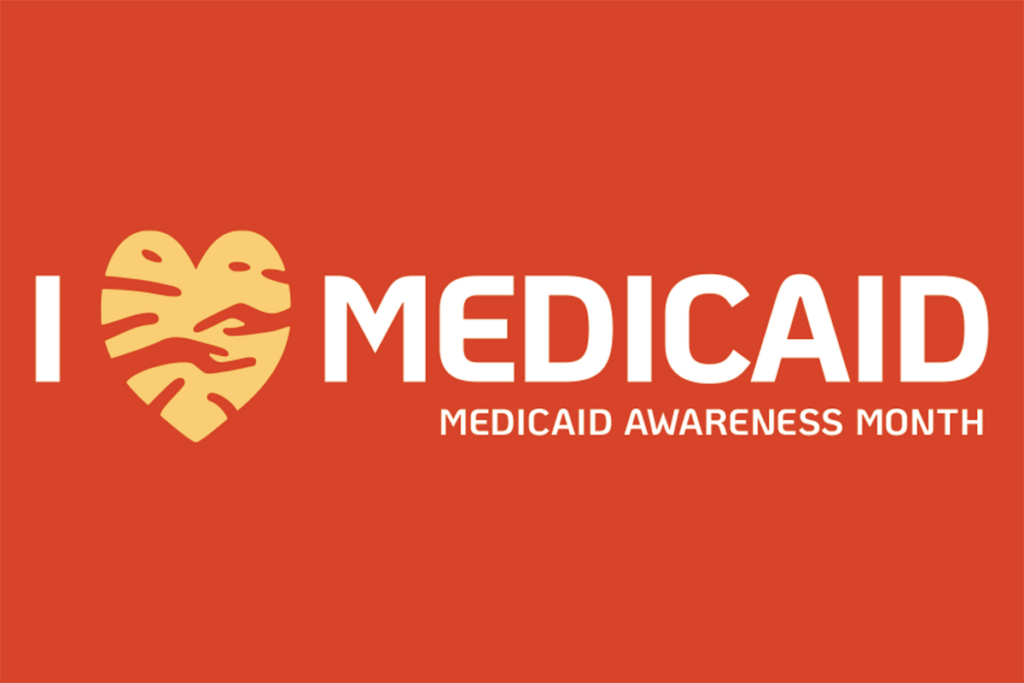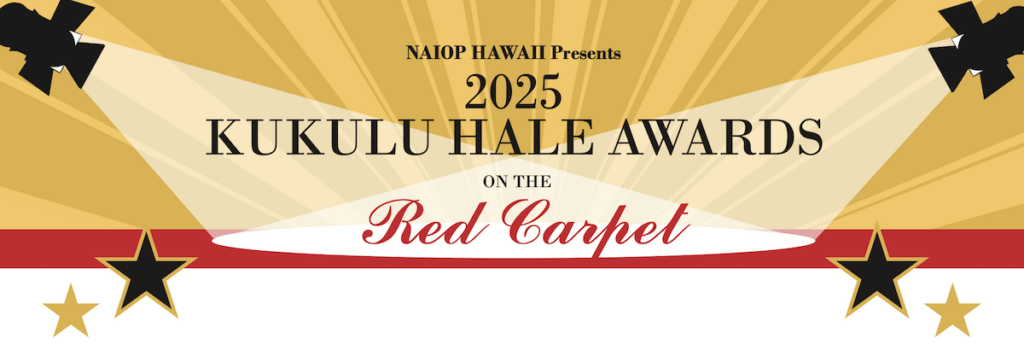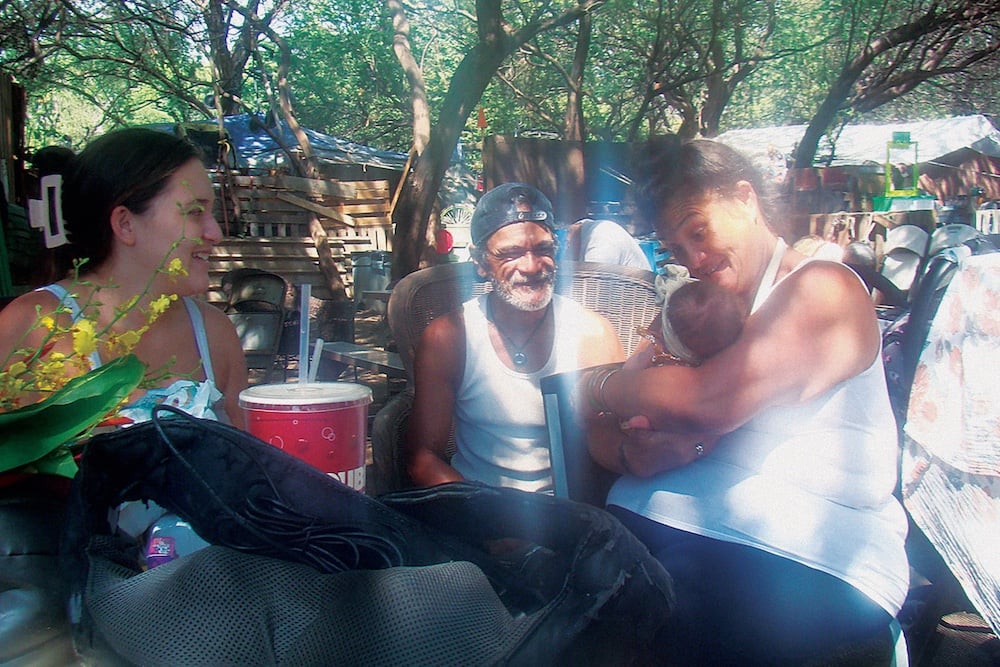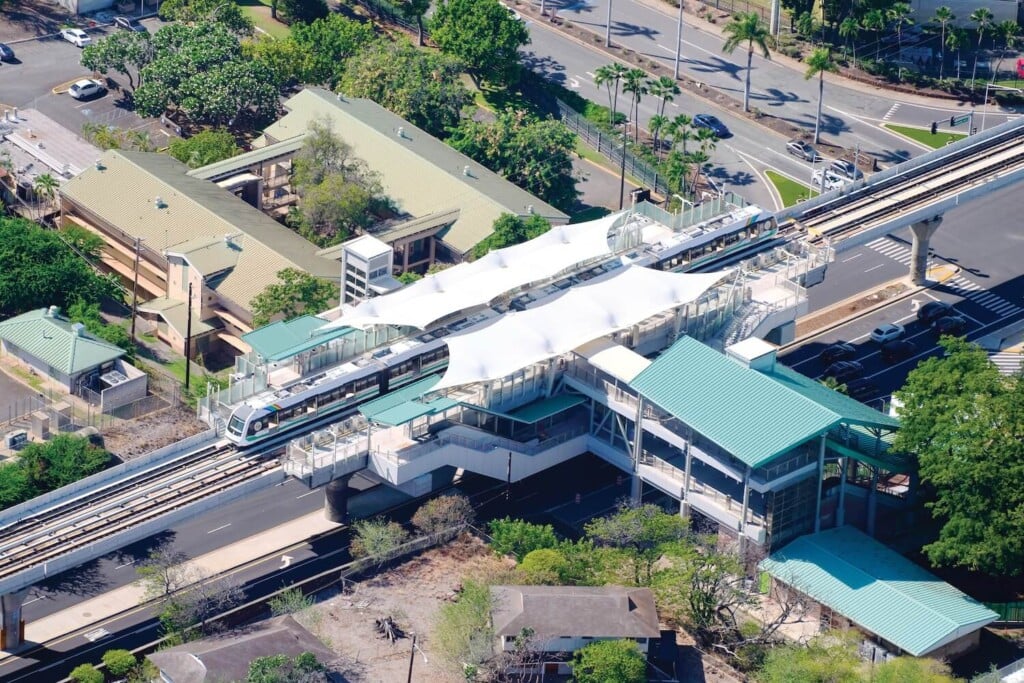Improving Health for Hawai‘i
Kaiser Permanente is committed to improving the health of the entire community by addressing food insecurity and climate change.
When you think about health, you might think of doctor visits and medicine. But what about access to healthy food? Or a safe place to live? A person’s health is often determined by factors outside of the health care system. Evidence shows that these social determinants of health – including access to nutritious foods, housing stability, and economic opportunity – are important contributors to good health outcomes.
Kaiser Permanente has a longstanding commitment to making sure that people have opportunities to be healthy and thrive by investing in organizations that work to improve social determinants, such as distributing healthy, nutritious meals.
One continuing consequence of the pandemic has been a 50% increase in food insecurity in Hawai‘i since 2020, with kupuna and keiki struggling the most.
Nutritious food is a key to sustaining a healthy lifestyle, but some families and individuals must make hard choices between buying food or paying for a place to live. Too often that means they’re going hungry. According to Feeding America, an astonishing 136,190 people go hungry every day in Hawai‘i, and over 50,000 of these are keiki.
Kaiser Permanente contributes to improving food security by investing in innovative programs by food banks and other community organizations to improve access to healthy food for the most vulnerable in our communities. Last year, Kaiser Permanente awarded $245,000 to organizations focused on increasing food security.
Improving the supply of fresh, local food not only helps solve hunger, but has additional benefits for Hawai‘i farmers, and can create opportunities to deliver other social services to people in need.
Support to Hawai‘i Community Based Organizations
Last year, Kaiser Permanente funded more than $2.2 million in grants to local community-based nonprofits to support key areas.
From Farm to Food Bank
One way Hawaii’s food banks are tackling food insecurity is by making sure no food is wasted. In 2017, the international nonprofit Natural Resources Defense Council found that 40% of all food in the U.S. never gets eaten and ends up in landfills.
At some farms, there are crops that never get harvested. When there are no buyers, it doesn’t make economic sense for farmers to collect the food they can’t sell, so they plow over the crops instead. To address this, Kaiser Permanente awarded grants to the Hawai‘i Foodbank and the Maui Food Bank to give them the means to purchase the fresh produce from those farms before they are lost.
“We know for many families who are food insecure, fresh produce can be the first thing that falls off their grocery list,” says Amy Marvin, president and CEO of the Hawai‘i Foodbank. “Prices for food at home for groceries in Honolulu went up 25% in the last three years, which is incredible.”
The Hawai‘i Foodbank serves O‘ahu and Kaua‘i. Last year, it distributed 2 million pounds of fresh local produce through its Farm to Foodbank program. It works with over 40 local farmers and pays the costs associated with harvesting and packaging the rescued produce.
The food is then distributed through various food bank programs, including the new Kūpuna Fresh project, which provides 8- to 10-pound bags of fresh produce to seniors already receiving food assistance through the Hawai‘i Foodbank’s Senior Food Box Program.
“Kaiser Permanente has just been an incredible partner to support not just food and strengthening food security, but also nutrition security,” says Marvin. “We’re really working to ensure that the food that we distribute is not just calories but healthy calories.”
Kaiser Permanente also supports the Maui Food Bank, which serves people on Maui, Moloka‘i, and Lāna‘i. The Maui organization has a similar program for the delivery of fresh fruits and vegetables called Fresh 4 All. Through that program, the Maui Food Bank purchases fresh produce from Maui farmers and distributes it to people in need.

Maui Food Bank works with local farms to harvest produce that will be distributed to people in need. | Photo: courtesy of Maui Food Bank
“The folks that are getting this food typically are strapped on their budgets and don’t typically have the available funding to buy locally fresh produce, so this helps them actually get a taste for fresh and local,” says Rich Yust, executive director of Maui Food Bank.
Maui Food Bank serves about 12,000 people per month and around 80% of them are getting fresh produce. The Fresh 4 All program also supports local farmers by providing a consistent, direct source of revenue.
Food Plus More
Some organizations also provide individuals with wraparound social services along with food to ensure they get all of the support they need.
Aloha Harvest’s free weekly meal program, Meals With Aloha, for instance, partners with community health workers to ensure that kūpuna have access to social services, if needed. These services may include help with digital literacy, caregiver education, SNAP, and veterans benefits.
Meals With Aloha emerged during the Covid-19 pandemic, when local hotels and restaurants had huge amounts of excess food. Today, the meals are a combination of purchased and rescued food.

The Aloha Harvest team prepares meals and delivers them to kūpuna as part of its Meals with Aloha program. | Photo: courtesy of Aloha Harvest
“In 2019, the volume of food we rescued was at about 1.8 million [pounds] for the year. This past year, 2022, it was just a little over 3 million, so not quite double, but significantly more,” says Phil Acosta, executive director of Aloha Harvest.
Acosta says Aloha Harvest is always looking for new places from which to rescue food. It’s also looking for volunteers to take part in food harvests and farm days.
“We’re very grateful for the partnership with Kaiser Permanente, and with all of our other partners who are helping to continue the Meals With Aloha program,” says Acosta. “We encourage other folks to get involved… to reach out to us and see how we can collaborate.”
Healthy Mothers Healthy Babies is another nonprofit integrating food distribution into its programs and services. “We catch the people who fall through the cracks,” says Sunny Chen, executive director of Healthy Mothers Healthy Babies. “Food insecurity T remains a challenge for a lot of our families and it’s a way to get them into the door and then we provide them with other support services that might be needed.”

Healthy Mothers Healthy Babies delivers cribs for kids as well as healthy foods for families. | Photo: courtesy of Healthy Mothers Healthy Babies
Its Māna ‘Ai program is a partnership with the nonprofit Lanakila Pacific, best known for its Meals on Wheels program. Instead of meals for kūpuna, the program provides meals to new and expectant mothers and their families who are struggling with food insecurity. Clients can also be connected to other perinatal services, including birthing coaches and mental health professionals. And Māna ‘Ai’s Cribs with Kids program can provide clients with food and diapers.
“It’s all interconnected, and it’s all part of the huge systemic issues that we face when we’re working towards health equity,” says Chen. “Access to food is just so important. It really does open doors.”
How Climate Change Affects Health
The relationship between climate and health is tightly wound. Rising temperatures can cause heat-related deaths. Increasing air pollution can worsen asthma symptoms and cardiovascular disease. Sea level rise can introduce contaminants to drinking water sources.
Within the next 30 years, the World Health Organization expects approximately 250,000 additional deaths per year due to climate change.
“We know that for there to be a change, it really means that people need to recognize climate change as not only an environmental issue but also a human health issue that affects each and every one of us,” says Seema Wadhwa, executive director of environmental stewardship for Kaiser Permanente.
The social determinants of health—nonmedical factors such as income, education, environment, and food insecurity—influence an individual’s health and well-being. Climate change worsens these impacts, particularly among vulnerable populations.
“Kaiser Permanente really understands the fact that what we do in medical care really accounts for just a small piece of a person’s health care and wellness,” says Dr. Marcus Iwane, chief of the West O‘ahu Medical Office in Kapolei.
He is seeing the effects of climate change, firsthand. “I think climate change is extremely important to build awareness for, especially in communities around Hawai‘i, particularly because climate change is here. It’s happening now,” Iwane says.
Communities and populations with significant socioeconomic barriers and underlying health conditions or disabilities will be hit hardest by climate change and climate change-related disasters.
“There are Pacific Islanders who already struggle with a lot of chronic disease burden, you know, higher rates of diabetes, obesity, cardiovascular disease,” says Iwane. Climate-related events will exacerbate these issues. “Heat and extreme heat-related weather events are the No. 1 causes of climate-related deaths in the entire United States,” says Iwane.
Heat increases the risk for cardiovascular-related deaths and injuries. It can lead to a sedentary lifestyle, which can lead to obesity. It can mean longer pollen seasons, which affects people with allergies and asthma. It can also cause droughts, which then affects water sources, crops, nutrition, and diet.
Sea level rise is another major climate change concern in Hawai‘i. Roughly 1,000 chemically contaminated sites around the Islands are at risk of submersion due to flooding or coastal erosion, according to the Hawai‘i Department of Health. The subsequent contamination to the ocean would put human health at even greater risk.
Kaiser Permanente is responding to climate change and its associated health risks by raising awareness, partnering with community organizations, and committing to environmental sustainability.
One of the top climate concerns in Hawai’i revolves around sea level rise and how it may introduce contaminants to water sources.
Tackling the Issue
In 2020, Kaiser Permanente became the first U.S. health care organization to achieve carbon neutral status by buying enough clean energy and carbon offsets to remove more greenhouse gases from the atmosphere than they emit. That’s equivalent to taking 175,000 cars off the road.
Kaiser Permanente’s next goal is to reduce its greenhouse gas emissions by 50% by 2030 and 100% by 2050.
“We’ve taken a lot of action and have a lot of focus on reducing our impact, but we actually see our responsibility as going far beyond that,” says Wadhwa. “That includes making investments upstream in the community that have a downstream impact through that lens of environmental stewardship and looking beyond our walls.”
Just recently, Kaiser Permanente announced a partnership with BSR, a global nonprofit business network, to implement a joint climate action plan. “We actually are hosting a series of events with the World Economic Forum to help businesses better understand how climate is impacting health because, we in the health care sector, we see it firsthand.”
Last year, Kaiser Permanente signed the Climate Coalition Pledge, which asks organizations to commit to act with speed, track carbon emissions annually, create a plan to reduce emissions, and share progress transparently.
“They’re the first organization in the medical field that has signed,” says Jeff Mikulina, director of the Climate Coalition. “They’re really at the vanguard of climate action.”
The Climate Coalition is an initiative started by the Hawai‘i Executive Collaborative—a group of business leaders united to take on some of Hawai‘i’s toughest issues, including climate change. It helps organizations by providing a road map for how to reduce their carbon footprints. The coalition also wants businesses to work collectively to impact systemic change through policy changes.
“What we’re doing is trying to change the conversation and engage organizations in a new way,” says Mikulina. In addition to Kaiser Permanente, he says 33 other organizations have signed on with the Climate Coalition Pledge so far, including Alexander & Baldwin, Blue Planet, Merriman’s, Hawai‘i Gas, Hawaiian Airlines, and Hawaiian Telcom.
“We think that’s really the powerful piece in this… that we get organizations to really think about the entire system and their role in it to help make a difference,” says Mikulina. “As we see it, in 2023, this is how you behave as a good corporate citizen.”
Going Mobile
In April, Kaiser Permanente launched a 40-foot-long mobile health vehicle on O‘ahu. Equipped with two exam rooms, a laboratory and state-of-the-art medical equipment, the vehicle is unlike any other in Hawai‘i. It allows Kaiser Permanente to take its services on the road and reach communities where there are no clinics.
“The intent was to be able to bring our primary care services to our members on the remote parts of the island where our members might have difficulty either getting to one of our brick-and-mortar medical facilities or, basically, they’re not coming in from those areas of the island,” says Shaunte Jacinto, RN manager for the mobile health vehicle. “We wanted to try to bring it close to them.”

Kaiser Permanente’s new mobile health vehicle is unlike any other in Hawai’i. | Photo: courtesy of Kaiser Permanente
The mobile vehicle is staffed with a physician’s assistant, a registered nurse, and a driver/receptionist. Members can schedule primary care visits on the mobile vehicle for wellness physicals, follow-ups after hospitalization, wound care, and both chronic and acute illnesses.
It also offers a few nonmember services at no charge. “For our nonmembers, we’re offering blood pressure and other health screenings,” says Jacinto. “We hope to, once flu season comes back around, offer flu vaccines and Covid vaccines to nonmembers also.”
Since its launch, the mobile vehicle has operated at community events, but Jacinto hopes to have a schedule soon of set times and places so people know where the vehicle will be parked. Members interested in knowing where the vehicle will be next and wanting to make an appointment may call Kaiser Permanente’s one number for care at 833−833−3333.









